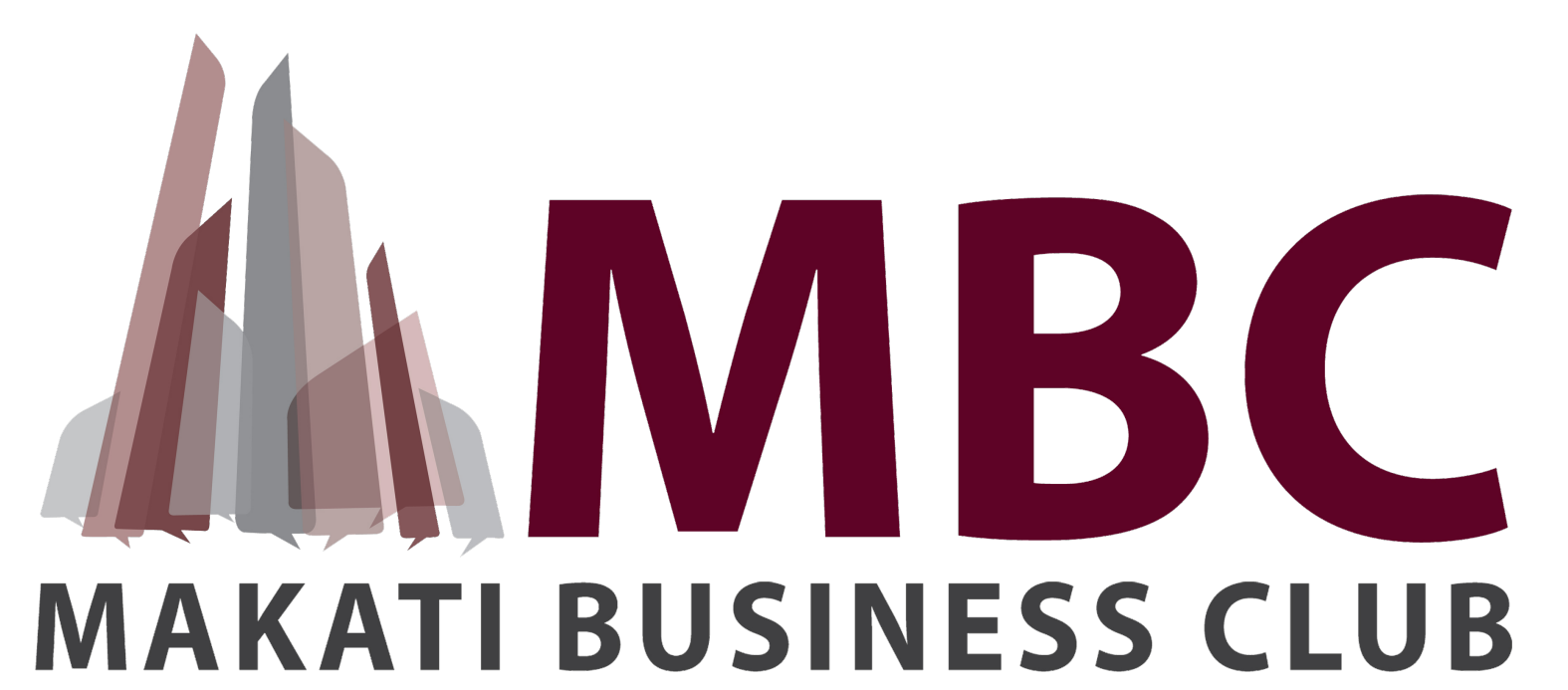Philippines’ Renewable Energy Advantage Highlighted at SEA Green Economy Roundtable
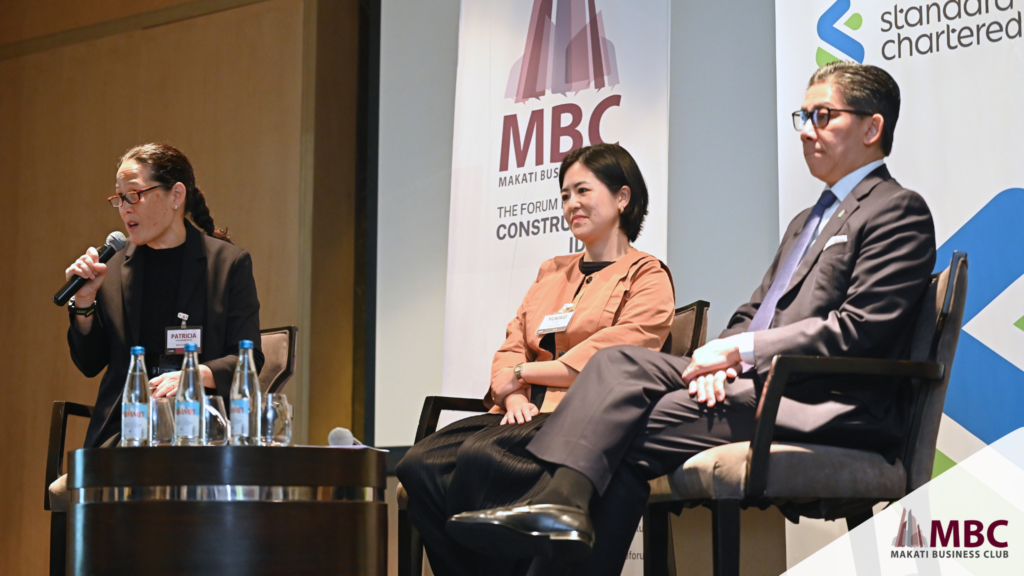
17 June 2025 – The Philippines is uniquely positioned to lead Southeast Asia’s green transition, with experts emphasizing that the country has a strategic opportunity to accelerate renewable energy adoption. This stems from the country’s abundance of natural resources, particularly solar, wind, and geothermal. This was one of the key messages from the Makati Business Club and Bain and Company’s 2nd annual roundtable on Southeast Asia’s Green Economy 2025 Report, co-organized with Standard Chartered Bank.
Held on June 17, the event featured insights from Bain’s latest report, Southeast Asia’s Green Economy 2025 Report: Unlocking Systems for Growth and Impact, presented by Yukiko Tsukamoto, Partner at Bain & Company. She was joined in a panel discussion by Mike Samson, CEO of Standard Chartered Bank Philippines, and Patricia Buenaventura Nichol, Partner and Officer, Head of Bain Philippines.
The roundtable gathered leaders across the banking, energy, infrastructure, real estate, technology, logistics, and investments industries, highlighting that the green transition is no longer the concern of one industry alone. Every sector has a stake in Southeast Asia’s climate and economic future. A portion of the discussion presented how the Philippines can scale up renewable solutions while achieving job creation, economic competitiveness, and energy security.
“So top three cities that will likely to have the biggest financial loss in the coastal line cities are actually in Southeast Asia,” Tsukamoto said, noting that Manila is among them. “We are potentially needing to pay for that price,” she added, emphasizing the urgent need for climate action as its impact is already unfolding.
The 2025 report underscores three systems that can yield the most economic and environmental impact: the bioeconomy, power, particularly grid modernization, and transport. In the Philippines, progress has already been seen in corporate net-zero roadmaps and EV infrastructure, but Tsukamoto noted a remaining gap in meeting national climate targets.
Samson emphasized that the Philippines is in a uniquely favorable position to accelerate its green transition. “We in the Philippines don’t have a very large steel manufacturing industry; therefore, nothing to protect… But we have an abundance of sunlight. So, I still, you know, believe in the arc of hope – that whilst it’s necessary for our energy security, we have all of the incentives, negative and positive, to do more renewables.”
However, the discussion also acknowledged that ambition must be backed by action. Panelists highlighted the importance of policy consistency to provide a clear signal for investors, a faster approval process for green projects thereby easing the pathway for new technology adoption and investment, collaboration of local governments to engage in national policies to create supportive environments for renewable energy projects, and financial institutions are especially vital in the energy sector to continue the push for financing innovations (e.g. roof top,micro-grid). These stakeholders play interrelated roles to foster a conducive environment for the green economy, each focusing on creating a supportive framework, investing in sustainable practices, and innovating financial solutions. “And these are not overnight capital decisions. These are decisions that will set the course for the country for the next 30 years.”
Tsukamoto also stressed the importance of public-private collaboration, noting that “holistic solutions are required,” especially when addressing cross-cutting issues like land acquisition and repurposing, supply chain waste, and local regulatory hurdles.
“Don’t lose hope,” Samson added, addressing developers, financiers, and regulators in the room. “We can only manifest the change through you,” he added. Hinting that though there are challenges, there’s only growth and improvement especially when the technology becomes more viable in the future. There may be complexities in policy, land use and infrastructure, but Samson put it, “the need will overwhelm the downsides.” We already have the incentives, we just need the collective will.
As the region strives for a just transition, the roundtable reinforced that climate action is a shared responsibility and a shared opportunity for businesses, governments, and financiers. We need proactive strategies, collaborative efforts, and a commitment to sustainable development to ensure a prosperous and environmentally responsible future for the region. Below are some of the ways MBC has been contributing to the sustainability agenda:
- The Makati Business Club’s (MBC) work on sustainability spans work from company-level support to systems-level solutions in agriculture, circular economy, and clean energy. These areas of work are in alignment with the systems-level solutions highlighted in Bain’s Southeast Asia’s Green Economy 2025 Report.
- Particularly, MBC’s work in guiding companies in mapping and reducing Scope 3 emissions, including efforts to train and capacitate their supply chains toward more sustainable practices.
- Over time, our efforts have expanded to tackle regulatory and policy challenges, linking our initiatives on the circular economy and energy transition with broader development conversations.
- In the energy space, MBC has hosted roundtable discussions on offshore wind, waste-to-energy, and soon carbon credits, ensuring that private sector perspectives are grounded in lived experiences and contribute meaningfully to national priorities. These efforts reflect a shared belief that lasting progress requires integrative, cross-sector solutions.
- The Southeast Asia’s Green Economy Report 2025 reaffirms this path, calling for the kind of systems thinking and multi-sector collaboration that MBC is proud to help advance.
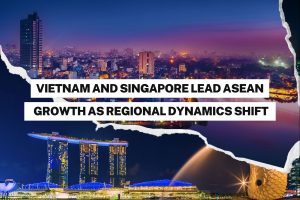
ASEAN 6 GDP: Vietnam And Singapore Lead ASEAN Growth As Regional Dynamics Shift
ASEAN 6 GDP: Vietnam And Singapore Lead ASEAN Growth As Regional Dynamics Shift Country Q1 Q2 Q3 Q4 2025 Indonesia 4.87 5.12 5.04 5.39 5.11
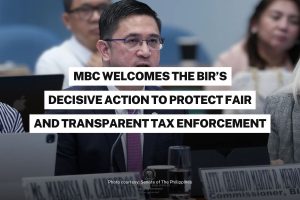
MBC Welcomes the BIR’s Decisive Action to Protect Fair and Transparent Tax Enforcement
MBC Welcomes the BIR’s Decisive Action to Protect Fair and Transparent Tax Enforcement 24 February 2026 – The Makati Business Club commends Bureau of Internal
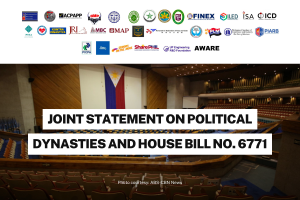
Joint Statement on Political Dynasties and House Bill No. 6771
Joint Statement on Political Dynasties and House Bill No. 6771 13 February 2026 – The absence of an effective Anti-Dynasty Law has allowed political power
